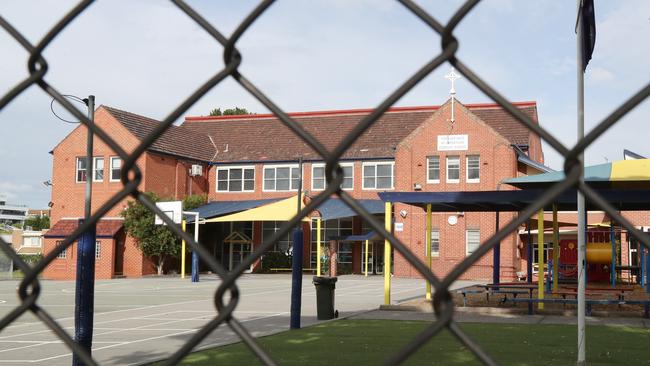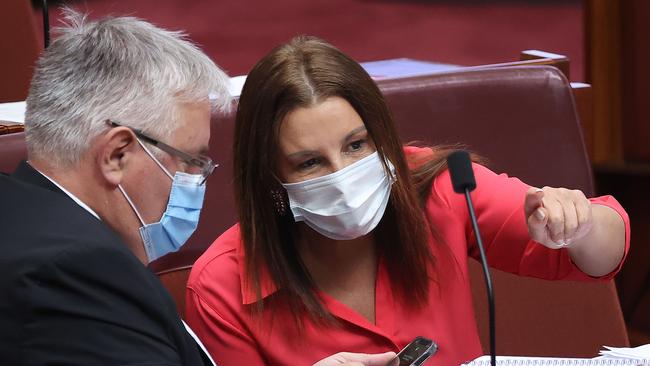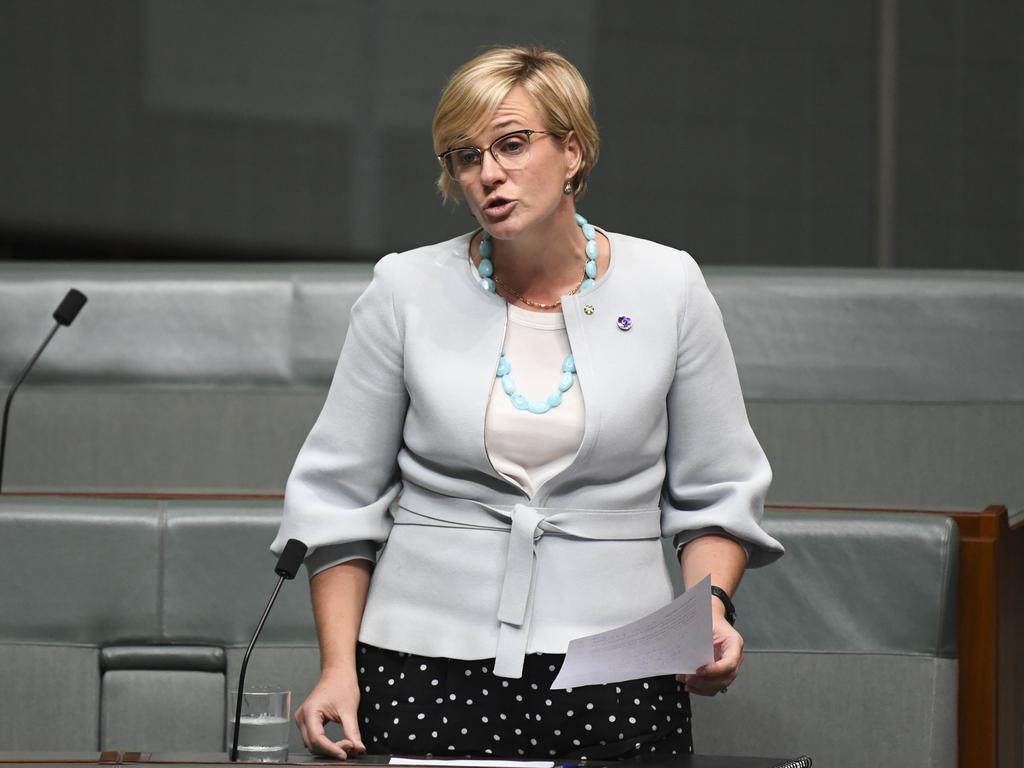Religious freedom tumbles into political and cultural divide
The government’s discrimination bill is dead this term, but the issue isn’t.

On the eve of the election the parliament has failed the nation – another ignominious event for Australia. The national parliament has again proved itself incapable of legislating an essential human rights provision – addressing the inadequate protections for faith communities, religious schools and individual believers.
The religious issue now seems dead this parliamentary term. The issue will play out in the election campaign, where the significant differences over religious discrimination between the Coalition and Labor will be on display. Both leaders will pledge their own bills in the next parliament.
In the interim this failure, now spanning two federal elections, becomes a national embarrassment – a widening cultural division linked to political stalemate. Many faith-based communities and religious schools are left feeling exposed and vulnerable while the progressive movement and the LGBTIQ lobby, having scored a major victory this week, seek further protections under the law.
Morrison has been humiliated. At the start of the week he appealed in the party room for MPs to unite and back the bills, saying: “I’m asking you once again to follow me to an election victory.” Yet Morrison was repudiated, with five MPs crossing the House of Representatives floor and the knowledge that more revolt was coming from the Senate. The optics suggest a government in decay.
The Prime Minister misjudged the timing, tactics and the mood inside his own party. This debate should have been held last year. It is another defeat for the conservative side on an issue of supreme cultural importance. If the government loses the election this loss will assume iconic and historic dimensions.
While Australia has anti-discriminatory laws covering race, sex and gender, this is not the case with religion as many parliamentary inquiries have documented. The Australian Human Rights Commission says current laws protecting belief or non-belief are incomplete and “do not provide enforceable remedies when discrimination is established”.
Any effort by Morrison to cast Labor as responsible for the provision’s defeat will be undermined by the defections from his own ranks pointing to a values schism within the Liberals. But the showdown is further proof of the decisive change in Labor’s identity and its relentless transition to become a progressive party.
The government had no option after its defeat in the house but to pull the bills. Assistant Minister to the Attorney-General and Assistant Minister for Women Amanda Stoker told Inquirer the amendments exposed religious schools to untenable discrimination that the government could never accept.

“The amendments went well beyond anything contemplated by the government,” she said. “For instance, a girls school would be seriously constrained in making its decisions. We could find a biological male who presents as a woman being required to be admitted into a girls school. And that school would not be able to place constraints or different arrangements on that student to ensure no injury is caused to other girls in contact sport or to ensure they can be safely and respectfully accommodated, whether in boarding school or school camps, change rooms, bathrooms – the list goes on.
“The school cannot resist admission on the basis of their gender identity. It cannot place discriminatory restrictions on the ability of such students to participate in school activities that are different to other girls. This issue was not worked through by those who put forward the amendment.
“It highlights how important it was for a considered legislative process to be conducted through the Australian Law Reform Commission, as the government proposed, to ensure the needs of these vulnerable children are respected while ensuring the safety and operations of religious school are not compromised.”
No Liberal government could tolerate the situation Morrison faced in risking the amendments to the Sex Discrimination Act, having passed the house, then passing the Senate and becoming law – all on Liberal defector votes.
Stoker said: “Given how unworkable this legislation made the operation of religious schools and the threat that it presented to the safety of the hundreds of thousands of students in the religious school sector whose needs weren’t carefully thought through by those who put forward the amendment, there was no choice for the government but to act the way it did. The government could not, in good conscience, do anything to undermine the viability of religious schools.”
There was much emotion and discussion of principle this week. Green, Labor, independent and Liberal supporters of the amendment said transgender students must be included and they were not prepared to await proposals from the Australian Law Reform Commission. It is, however, the job of legislators to make sensible and workable law. Much of the house did not understand the full consequences of what it was legislating.
The government faced a potential nightmare scenario – having unacceptable changes to the Sex Discrimination Act imposed on it and in the Senate the serious prospect that Labor’s amendments to the religious discrimination bill would also be passed.
Morrison signalled on Tuesday – before the withdrawal of the bills – his determination to fight on this issue: “If those in this chamber want to speak about multiculturalism and how great a multicultural society it is, then they must acknowledge the role of faith and culture … I know the faith communities of suburban Melbourne whether they be Sikhs or the Hindus, or the Muslims of Sydney and Melbourne or the Christians of northwestern Sydney or Queensland or southern Tasmania or northern Tasmania …”
But ALP leader Anthony Albanese’s pitch was astute; he pretended everybody could be satisfied – an appealing yet flawed notion. He pledged to enhance protections against religious discrimination without enhancing discrimination against others. This is Labor’s foundation position. “This bill wants to pit those groups against each other,” the Opposition Leader said, attacking Morrison. “I want to defend all of them.”
There was strong support within Labor to vote down the religious bill in its entirety. In the end Labor’s amendments reflected its preference to ensure any religious protections were strictly limited by the imperative to guarantee rights for the LGBTIQ community and to ensure state anti-discrimination laws were not overridden.
The mistrust between Labor and religious communities is likely to grow. So will the angst within the Liberal Party between progressives and the bulk of the party. If Albanese wins the election the post-election irony he might confront is sponsoring a religious discrimination bill that is resisted by wide sections of the religious communities.
While the Liberal defectors – Trent Zimmerman, Bridget Archer, Dave Sharma, Katie Allen and Fiona Martin – undermined the government, their actions in support of transgender students should bolster their prospects of holding their seats.
In the Senate, NSW Liberal Andrew Bragg made clear he would follow them if the vote was taken. “I believe the parliament improved the legislation and the improvements should be kept,” Bragg told Inquirer. Both Zimmerman and Archer went further and supported Labor’s unsuccessful amendment to the religious bill itself to stop any overriding of existing state anti-discrimination laws.
Morrison, meanwhile, faced evidence of dissent in senior ranks, not just the backbench. This came with the leaking of the proposal he floated in cabinet on Monday night that the national integrity commission bill be brought forward in an effort to persuade or horse-trade for votes on the religious issue from MPs such as Archer – a dubious notion that left a cabinet majority mightily unimpressed. The optics again are a government trapped in a scramble too late in the term to honour its commitments.
There is no gainsaying the victory for the progressive movement, the LGBTIQ lobby and Equality Australia that wanted the main bill voted down “in its entirety” if amendments were not secured. While the amendments were not secured, the bill was withdrawn. Equality Australia, seasoned in these campaigns, was conspicuous in staying united – demanding that transgender students be given the same immediate protection as gay and lesbian students.
After the house passed the amendments the Australian Christian Lobby demanded the religious discrimination bills be withdrawn immediately, saying: “The bills were intended to help faith-based schools but they now do more harm than good.” But the ACL does not represent or speak for the majority of religious schools. The Catholic sector has a different and more pragmatic view – it remains focused on securing the bills.
National Catholic Education Commission chief executive Jacinta Collins told Inquirer: “Our view is: get this thing done. Find a bipartisan solution. We have not withdrawn our support for the bill. We should not allow it to languish any further.”
Submissions by the National Catholic Education Commission and Catholic Archbishop of Melbourne Peter Comensoli, chairman of the Bishops Commission, highlight the threat the Catholic sector feels and its urgent need for legislative protection from activist assaults. The Catholics “strongly support” the overriding of state and territory laws infringing on the capacity of religious schools to fulfil their mission.

The bishops’ submission recalled how Hobart Archbishop Julian Porteous and the Bishops Conference were required in 2016 to answer to the Tasmanian Anti-Discrimination Commission over a complaint about a document merely setting out church teaching on marriage. “This case was not accidental,” the submission said. The complaint was made following pressure from activists.
The Catholic education submission points out that it employs more than 100,000 staff across Australia and now faces the application of the Victorian government’s Equal Opportunity (Religious Exceptions) Act 2021 that restricts the ability of Catholic educational institutions “to preference the employment of staff who are Catholic and/or are willing to support the ethos and mission of the Catholic school”.
It attacks the Victorian state government law for violating “practical realities, natural rights and common sense” and brands the law as “an intrusion by government” into the affairs of religious institutions and an assault on “the purposes of religious educational communities.”
Labor had a victory this week forcing the government to withdraw the religious discrimination bill that Labor deemed to be unacceptable. Parts of the bill were too provocative anyway with several aspects having no parallel in any model of anti-discrimination law in Australia. The government needs to rethink further.
But the bonus for Labor was obvious: it avoided the risky fate of having to vote against the bill in the Senate if its amendments were not carried. Opposition Legal Affairs spokesman Mark Dreyfus said of Labor’s amendments that if any were accepted in the house or Senate then Labor “will insist on them”.
Further exposing the ineptitude of the coalition of MPs that voted for the amendments in the house, Attorney-General Michaelia Cash wrote to Rebekha Sharkie, the MP who moved the key amendment, warning that its technical consequence left open the possibility of religious schools being allowed to discriminate on other grounds. Obviously, this was not the intention of the amendment’s supporters.
The conclusion from the week is that Coalition-Labor differences on religious protection are substantial. This issue is deceptive – the superficial impression is that there are few real differences but once the debate is focused on actual amendments the chasm looms large. Labor will be vulnerable in the election campaign in seats with large faith-based communities but much depends on the ability of the government to exploit its potential advantage.
“The difference between the government and Labor on these issues is stark,” Stoker told Inquirer. She said the effect of the amendment passed in the house had far greater import than appreciated since discrimination law can apply if people hear words that shock or confront them.
“Because the amendment is in such broad terms it has the effect of covering what is taught in schools in so far as that might confront or offend somebody who is either homosexual or has gender identity issues,” Stoker said.
“Because of that line of authority in discrimination law, schools now face the reality they will need to edit the tenets of the faith they can teach in school. If they are forced to admit people whose sexuality or identity does not align with the tenets of the school’s faith, they will have to edit what they teach because of the threat of discrimination law action.”







Scott Morrison’s effort to entrench a religious discrimination law in Australia has ended in parliamentary fiasco, government disunity, deep Liberal-Labor differences over religious protection and another blow to the Prime Minister’s authority.